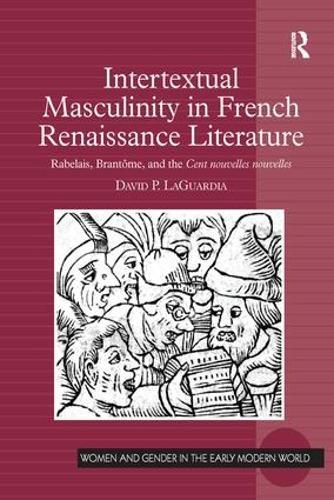Readings Newsletter
Become a Readings Member to make your shopping experience even easier.
Sign in or sign up for free!
You’re not far away from qualifying for FREE standard shipping within Australia
You’ve qualified for FREE standard shipping within Australia
The cart is loading…






Intertextual Masculinity in French Renaissance Literature is an in-depth analysis of normative masculinity in a specific corpus from pre-modern Europe: narrative literature devoted to the subject of adultery and cuckoldry. The text begins with a set of general questions that serve as a conceptual framework for the literary analyses that follow: why were early modern readers so fascinated by the figure of the cuckold? What was his relation to the real world of sexual behavior and gender relations? What effect did he have on the construction of actual masculinities? To respond to these questions, David LaGuardia develops a theoretical approach that is based both on modern critical theory and on close readings of records and documents from the period. Reading early modern legal texts, penance manuals, criminal registers, and exempla collections in relation to the Cent nouvelles nouvelles, Rabelais’s Tiers Livre, and BrantAme’s Dames galantes, LaGuardia formulates a definition of masculinity in this historical context as a set of intertextual practices that men used to relay and to reinforce their gender identities. By examining legal and literary artifacts from this particular period and culture, this study highlights the extent to which this supposedly normative masculinity was historically contingent and materially conditioned by generic practices.
$9.00 standard shipping within Australia
FREE standard shipping within Australia for orders over $100.00
Express & International shipping calculated at checkout
Intertextual Masculinity in French Renaissance Literature is an in-depth analysis of normative masculinity in a specific corpus from pre-modern Europe: narrative literature devoted to the subject of adultery and cuckoldry. The text begins with a set of general questions that serve as a conceptual framework for the literary analyses that follow: why were early modern readers so fascinated by the figure of the cuckold? What was his relation to the real world of sexual behavior and gender relations? What effect did he have on the construction of actual masculinities? To respond to these questions, David LaGuardia develops a theoretical approach that is based both on modern critical theory and on close readings of records and documents from the period. Reading early modern legal texts, penance manuals, criminal registers, and exempla collections in relation to the Cent nouvelles nouvelles, Rabelais’s Tiers Livre, and BrantAme’s Dames galantes, LaGuardia formulates a definition of masculinity in this historical context as a set of intertextual practices that men used to relay and to reinforce their gender identities. By examining legal and literary artifacts from this particular period and culture, this study highlights the extent to which this supposedly normative masculinity was historically contingent and materially conditioned by generic practices.